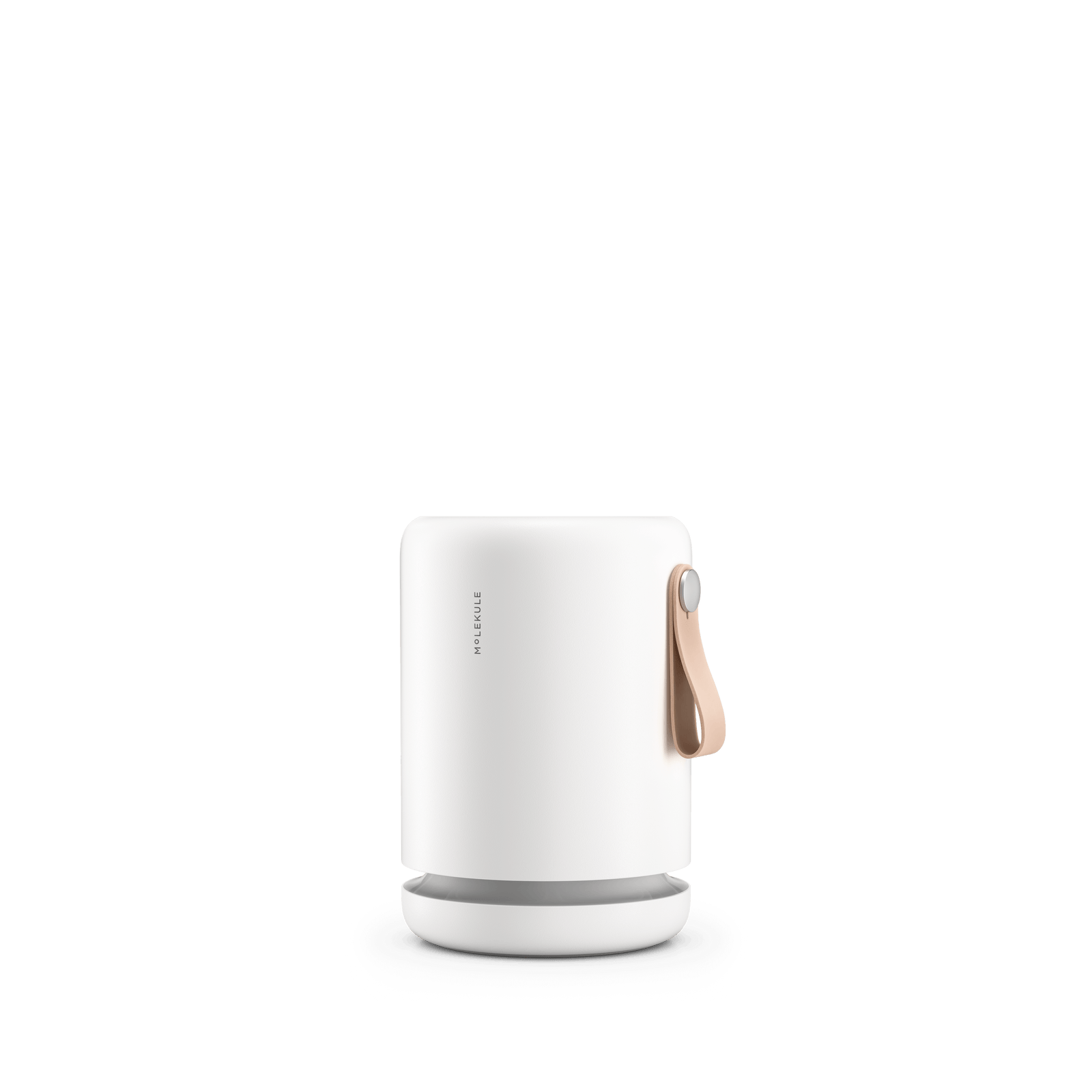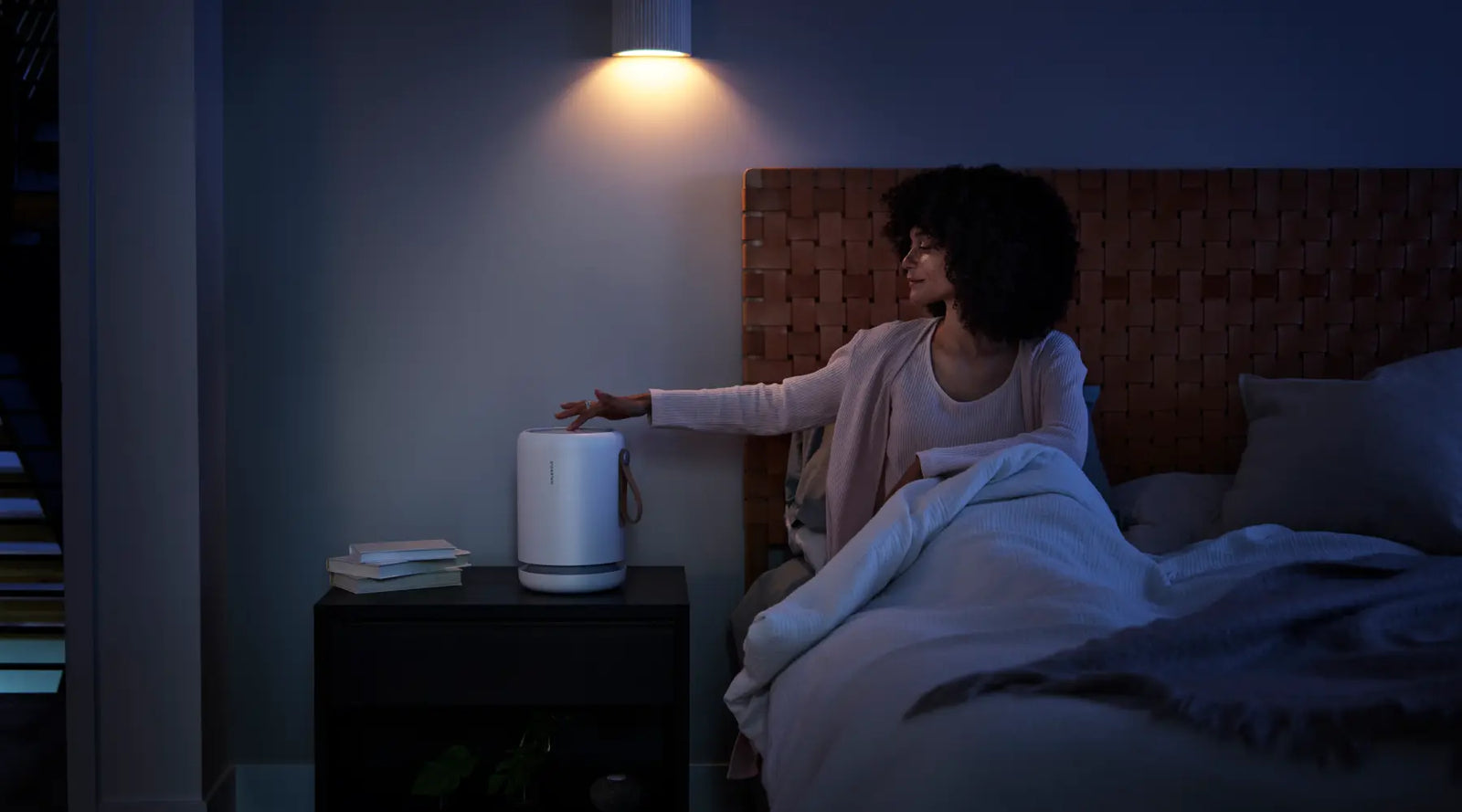This article is for informational purposes only and is not a substitute for medical advice.
Updated by Molekule Staff 8/5/2022
We all know how important it is for us and our children to get a good night’s sleep. Unfortunately, nasal congestion at night can make sleeping difficult, if not almost impossible. It can leave you or your children feeling stuffy and exhausted when it is time to get up in the morning. Fortunately, waking up in the middle of the night with a stuffy nose does not necessarily indicate that you are coming down with something, but it doesn't mean that you should let your nasal congestion symptoms go unaddressed, either.
Below, we take a look at what causes a stuffy nose at night and what you can do to relieve congestion. The information below is for educational purposes only and should not be construed as medical advice. Please consult your physician for a diagnosis before making medical decisions.
Why does nasal congestion get worse at night?
A congested or stuffy nose primarily happens when the tissues in your nasal cavity become swollen. This swelling is due to inflamed blood vessels and fluid buildup in the tissues, and often becomes worse when you lie down. This could be because your movements and positions (such as sitting upright compared to lying down) affect your bodily functions, including blood circulation, causing you to experience certain symptoms, such as nasal congestion, sinus pain or shortness of breath at night, even if you felt perfectly healthy during the day.
In addition to contributing to nasal inflammation, your posture can also affect how mucus builds up in your nasal passages. While you are standing or sitting upright, you have gravity helping you drain the mucus from your nasal cavity, but when you lie down, it becomes easier for mucus to accumulate and cause sinus congestion at night.
Nasal congestion at night can become especially noticeable when you have a cold, the flu or a sinus infection. You will notice how quickly postnasal drip or a runny nose during the daytime can quickly turn to a stuffy nose once you lie down to go to sleep. According to the NIH, nasal congestion may be caused by:
- Respiratory infections—A cold, flu or sinus infection are common causes.
- Hay fever or other allergies—If you have respiratory allergies and you breathe in allergens such as mold spores, dust mites, pet dander or pollen, your body may release chemicals that cause allergic rhinitis and respective symptoms, including nasal congestion.
- Nasal polyps—These small, sac-like growths can grow in the lining of your nasal cavity. Though benign, bigger nasal polyps can obstruct the airway.
- Nonallergic rhinopathy—This term refers to nasal irritation caused by foods, odors or atmospheric conditions, rather than by allergies or infection. For example, cold, dry air can cause the mucus in your nose to become dry and thick, as well as prevent sinus drainage, causing severe nasal congestion.
- Pregnancy—Hormonal changes during pregnancy can affect the blood flow to the nasal cavity, causing inflammation and congestion.
What causes nighttime nasal congestion in children?
Children and infants have narrower nasal passageways than adults, making them more susceptible to nighttime congestion caused by inflammation or excess mucus. Very young children and especially infants, who mostly breathe through their nose, cannot blow their noses as adults can for temporary relief. For adults, nasal congestion is a serious annoyance that can keep us from getting a good night’s sleep, but for children, it has the potential to lead to even bigger health risks and medical conditions. For example, Stanford Children’s Health states that a stuffy nose could affect your child’s hearing, in addition to keeping them from getting the sleep that they need for their still-developing bodies. Other long-term effects of nasal swelling and congestion in children, as described by the NIH, include speech development, while mucus drainage could lead to ear and sinus infections.
It can be difficult to determine just why your child is experiencing nasal congestion at night because children cannot always clearly explain the type and severity of symptoms that they are experiencing (Meltzer et al., 2013). Overall, the NIH lists some of the reasons behind your child’s stuffy nose around bedtime are similar to those for adults:
- Common cold or flu, which can fill the nasal cavity with mucus
- Sinus infection
- Hay fever or other allergies
- Nonallergic rhinopathy
However, with younger children, more sudden nasal congestion (especially when confined to a single nostril) may also be caused by a foreign object obstructing the nasal cavity.
Allergies and nighttime nasal congestion
Not only does lying down increase your symptoms of nasal congestion, but your allergy symptoms can also worsen during the night , causing a runny or stuffy nose as well as coughing or sneezing that make it difficult to get a good night’s sleep. The body’s production of certain allergy-regulating hormones differs, depending on where it is in the sleep-wake cycle. When you are fully awake, you produce more of these hormones, and when we are getting close to sleeping, the production of these hormones starts to dip, leaving our bodies more susceptible to allergic reactions and sinus issues ( Koinis-Mitchell et al., 2012).
Your body’s reactions to pollen, pet dander, mold and dust mites can become more severe during the night and impact your quality of sleep. While partly caused by the dip in allergy-regulating hormones, there are other factors that contribute to this as well. For instance, dust mites are typically concentrated in mattresses and pillows, meaning that you are exposed to them consistently all night long. Because of this, someone with a dust mite allergy may notice that their symptoms become worse at night and when they first wake up in the morning. Additionally, if you have a pet that has a habit of sleeping on your bed, there will be a higher concentration of pet dander there. The hours of nighttime exposure may cause an allergic reaction and severe congestion.
Reducing nighttime congestion
Experiencing periods of nighttime nasal congestion does not mean that you have to resign yourself to nights filled with restless sleep. If you or your children get a stuffy nose around bedtime, there are steps you can take to help you and your family breathe more easily during the night and get better, more restful sleep.
One common remedy to cut down on nighttime congestion is to reduce your exposure to any known allergens. If you or your child is sensitive to pollen, pet dander, or dust, look for ways to reduce their presence in your home (especially the bedrooms). You may also find relief from over-the-counter nasal decongestants or home remedies. Just make sure you talk with your healthcare provider before starting any new medications or supplements. You can also take a look at our blog on seven science-backed natural remedies for congestion.
Getting a good night’s sleep is one ingredient to leading a happy, healthy life, but it’s impossible to do if you can’t breathe through your nose at night. By finding the cause of the nighttime congestion affecting you or your child and taking steps to fix it, you invite more restful sleep back into your life. You cannot always avoid a stuffy nose around bedtime, but you should be able to alleviate your symptoms enough to sleep through the night.













